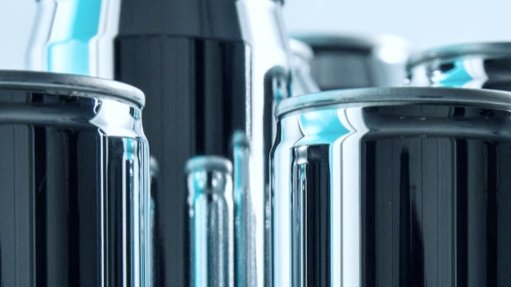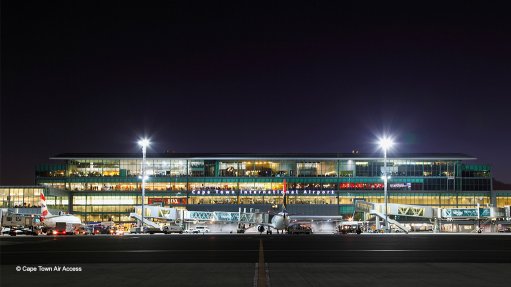SOEs are growth-negative contributors to SA economy
Is the South African economy down on its luck, down on its knees, face down, downtrodden, or simply down and out? What is without question is that the South African economy is letting South Africans down. The word ‘down’ is said to have originated from the fourteenth-century Old English word, ‘dune’, which literally means ‘from the hill’. Online Etymology Dictionary defines it thus: in a descending direction from a higher to a lower place, degree or condition.
Just in case you believe that the South African economy is in a race to the bottom . . . well, let me correct you: ‘a race to the bottom’ is, in fact, a socioeconomic phrase used to describe government deregulation of the business environment. It could also be associated with a reduction in tax rates. Individually or collectively, these socioeconomic interventions assist government in attracting or retaining economic activity.
Quite evidently, the South African economy is not in a race to the bottom in the socioeconomic sense of the phrase, but international ratings agencies might have caught on to another race in which it is partaking.
On July 26, Fitch Ratings changed its outlook on South Africa from ‘stable’ to ‘negative’. Fitch expects 2019 gross domestic product (GDP) growth of 0.5%, compared with the South African Reserve Bank’s 0.6% forecast and the National Treasury’s 1.5%, citing “weak gross fixed investment, subdued private consumption and a widening Budget deficit”. Fitch also states: “The outlook revision reflects a marked widening in the Budget deficit as a result of lower GDP growth and increased spending, including State-owned enterprise (SOE) support, increasing our projections for government debt to GDP and heightening the difficulty of stabilising debt to GDP over the medium term.”
Just to be clear, and just in case you are of the ‘glass half full’ persuasion, Fitch’s rating of South Africa of BB+ is one notch below subinvestment grade. This begs the question – three questions, actually: Who, among foreigners, would be inclined to invest in South Africa? Why would foreign individuals or foreign entities be inclined to do so? Why would foreigners be inclined to invest in South Africa, when South Africans – both individuals and entities – are not prepared to do so?
And, in a week when a foreign entity expressed its intention to invest in South Africa, the dominance of monopolies in the South African economy was described as a “key economic problem”, according to President Cyril Ramaphosa, citing the International Monetary Fund and the World Bank. According to Tshegofatso Mathe, writing in The Mail & Guardian on July 26, the President commented on the dominance of monopolies, saying: “They have a stranglehold on the economy … That was what was designed in the past and it was so designed that it ensured that there were a few insiders. It so happened that the insiders were white controllers of the economy and that has continued right until today.”
This is an interesting ‘insight’ but neglects the reality that SOEs, which are also monopolies, have a stranglehold on the economy. Further, their ‘controllers’ are not white. Surely, the failure of the SOEs is a key economic problem, if not the key economic problem in South Africa. Ironically, in the same week, Finance Minister Tito Mboweni announced R59-billion in additional support to State-owned electricity utility Eskom. Surely, South African Airways will soon come calling for additional support, as it does each year. Also in the same week, Moody’s Investors Service said that “the [South African] government will struggle to absorb the costs of the additional support to Eskom”. The agency terms this funding “credit-negative”.
The elephant in the room is surely not the dominance of private-sector ‘monopolies’, but rather the SOEs, which, were it not for the profits of the private-sector ‘monopolies’ and the subsequent tax revenue that they contribute, SOEs would not have the government funding that enables them to exist.
If anything, SOEs are ‘growth-negative’ contributors to the South African economy, pulling South Africa as a whole down.
Article Enquiry
Email Article
Save Article
Feedback
To advertise email advertising@creamermedia.co.za or click here
Press Office
Announcements
What's On
Subscribe to improve your user experience...
Option 1 (equivalent of R125 a month):
Receive a weekly copy of Creamer Media's Engineering News & Mining Weekly magazine
(print copy for those in South Africa and e-magazine for those outside of South Africa)
Receive daily email newsletters
Access to full search results
Access archive of magazine back copies
Access to Projects in Progress
Access to ONE Research Report of your choice in PDF format
Option 2 (equivalent of R375 a month):
All benefits from Option 1
PLUS
Access to Creamer Media's Research Channel Africa for ALL Research Reports, in PDF format, on various industrial and mining sectors
including Electricity; Water; Energy Transition; Hydrogen; Roads, Rail and Ports; Coal; Gold; Platinum; Battery Metals; etc.
Already a subscriber?
Forgotten your password?
Receive weekly copy of Creamer Media's Engineering News & Mining Weekly magazine (print copy for those in South Africa and e-magazine for those outside of South Africa)
➕
Recieve daily email newsletters
➕
Access to full search results
➕
Access archive of magazine back copies
➕
Access to Projects in Progress
➕
Access to ONE Research Report of your choice in PDF format
RESEARCH CHANNEL AFRICA
R4500 (equivalent of R375 a month)
SUBSCRIBEAll benefits from Option 1
➕
Access to Creamer Media's Research Channel Africa for ALL Research Reports on various industrial and mining sectors, in PDF format, including on:
Electricity
➕
Water
➕
Energy Transition
➕
Hydrogen
➕
Roads, Rail and Ports
➕
Coal
➕
Gold
➕
Platinum
➕
Battery Metals
➕
etc.
Receive all benefits from Option 1 or Option 2 delivered to numerous people at your company
➕
Multiple User names and Passwords for simultaneous log-ins
➕
Intranet integration access to all in your organisation

















